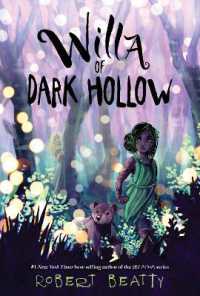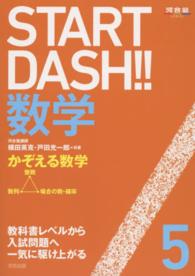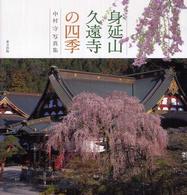Full Description
Richard Freedman's Music in the Renaissance shows how music and other forms of expression were adapted to changing tastes and ideals in Renaissance courts and churches. Giving due weight to sacred, secular, and instrumental genres, Freedman invites readers to consider who made music, who sponsored and listened to it, who preserved and owned it, and what social and aesthetic purposes it served. While focusing on broad themes such as music and the literary imagination and the art of improvisation, he also describes Europeans' musical encounters with other cultures and places.
Western Music in Context: A Norton History comprises six volumes of moderate length, each written in an engaging style by a recognized expert. Authoritative and current, the series examines music in the broadest sense—as sounds notated, performed, and heard—focusing not only on composers and works, but also on broader social and intellectual currents.
Contents
Part I: Beginnings 1. Music and the Cultures of the Renaissance
2. Learning to Be a Musician
Part II: Before 1500
3. Music at Court and a Songbook for Beatrice
4. Piety, Devotion, and Ceremony
5. Structures and Symbols in Cantus Firmus and Canon
Part III: Around 1500
6. Number, Medicine, and Magic
7. Music and the Ideal Courtier
8. Josquin des Prez and the "Perfect Art"
9. Scribes, Printers, and Owners
Part IV: After 1500
10. Music and the Literary Imagination
11. Music and the Crisis of Belief
12. The Arts of Improvisation, Embellishment, and Variation
13. Empire, Exploration, and Encounter
14. Tradition and Innovation around 1600








